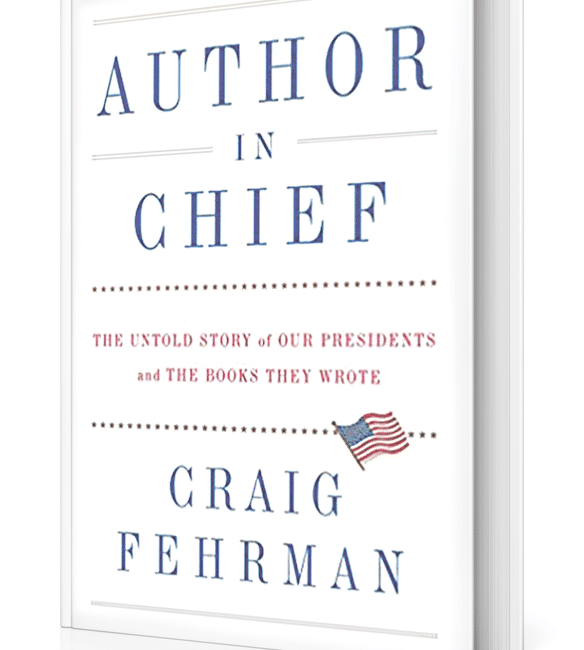Book Review: Author In Chief

A Bloomington author’s new book on presidents’ autobiographies has our vote. Image courtesy Simon and Schuster
Ulysses S. Grant finished his memoirs on his deathbed. Harry S. Truman signed 4,000 copies of his book in a single day. Barack Obama called his memoir “a flop,” until it was re-released and lived on the best-seller lists for years.
Writing a book before a presidential run—or after leaving office—is now mandatory, says Craig Fehrman, whose new book, Author in Chief, highlights the stories of American presidents and how they came to pen the tomes that would define them. In this debut, Fehrman dives deep into our presidents’ literary lives, including those whose ghostwriters took command of the pen, typewriter, or laptop, depending on the era. Fehrman, a regular Indianapolis Monthly contributor who has also written for The New York Times, The Washington Post, and The Wall Street Journal, offers thorough research and anecdotes across 448 pages. Bookworms, lovers of history, and political junkies will find a lot to like here.
Control and authentic authorship are recurring themes. Thomas Jefferson pulled from his extensive personal library to shape his writing; he had a “no reshelving” policy for guests, lest they bungle the system. John F. Kennedy badly wanted to win the Pulitzer Prize, and did for Profiles in Courage. Afterward, he vehemently denied any ghostwriter involvement, despite evidence to the contrary. Ronald Reagan could scarcely be bothered to promote his ghostwritten An American Life, and lost money for the publisher.
Our most writerly presidents also read voraciously. Grant is cited as the nation’s first fiction-loving president, as his Personal Memoirs attests. While at West Point, he paid more attention to novels than to his studies. Obama, who continues to share lists of his favorite books each year, takes the title of most recent fiction-loving president.
Though the final section of Author in Chief is titled “Truman to Trump,” musings on Obama’s literary inclinations and leadership style close the book. Readers looking for Trump’s 1987 The Art of the Deal will find it, curiously, a few chapters earlier. Sources report that when Trump came for a meeting at Random House, an editor pulled a Russian novel off the shelf, which the art director wrapped in black paper, spelling TRUMP in gold letters on the cover. Pleased, Trump accepted a six-figure advance (which he split with a ghostwriter) without any negotiation.
As Fehrman demonstrates, the story of presidential books is also a story of readers, a public hungry to know more about those we’ve elected or those on the ballot. The book-buying public casts the commercial vote through sales. Fehrman writes that “the most bookish Americans are 31 percent more likely to vote than their peers,” equating good readers with good citizens. This election year, voters in search of the long view ought to read Author in Chief, a book that is conversational, engaging, and compelling, backed by extensive research and appendices.
Then, recommend it to your not-so-civically-minded friends and relatives.





